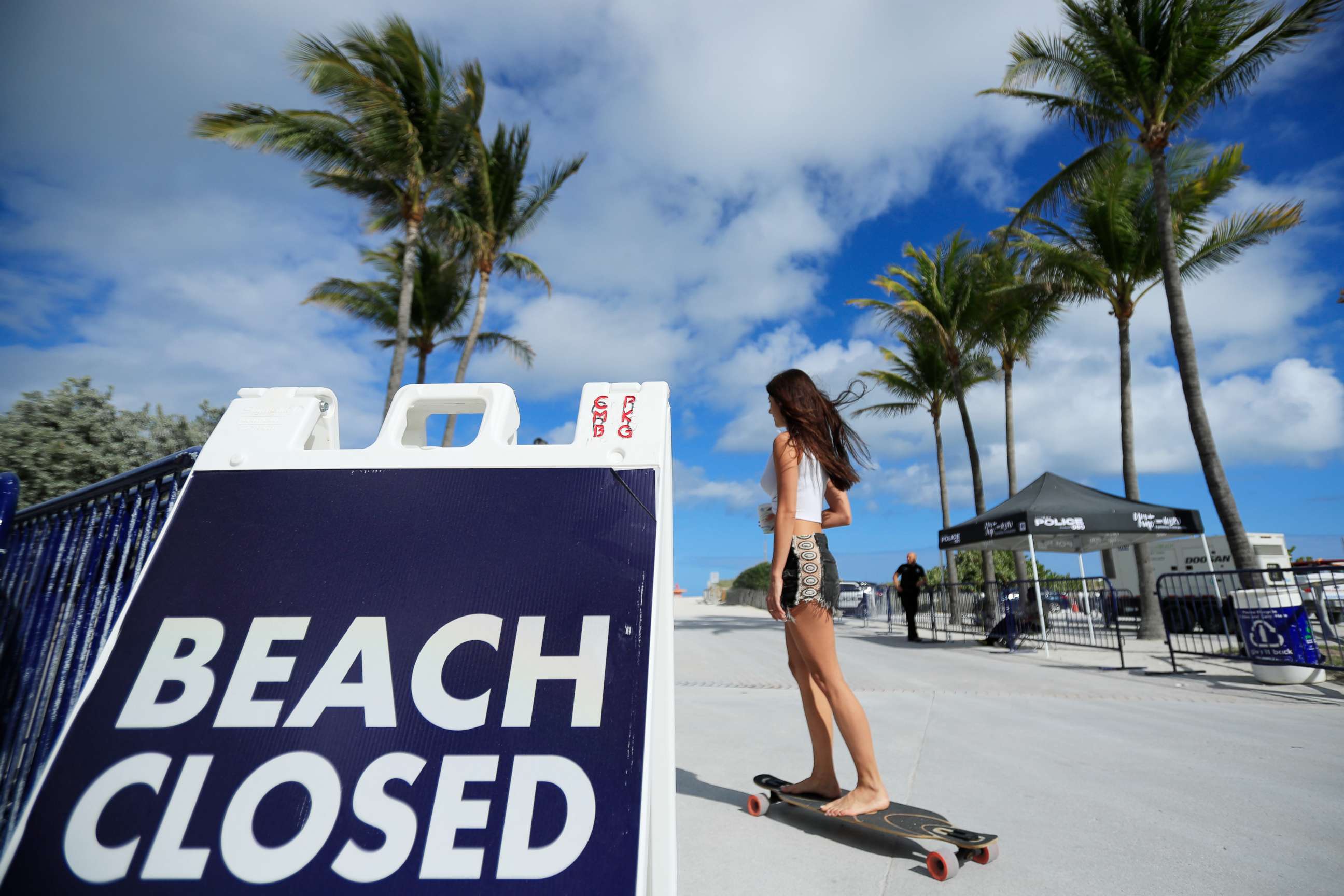How novel coronavirus is impacting people around the US
Americans are learning their “new normal” with social distancing.
In the last week, cases of coronavirus have spiked around the country causing New York Governor Andrew Cuomo to announce a 100% workforce reduction for all non-essential businesses statewide, while California Governor Gavin Newsom issued a “stay-at-home” order for all of the state’s 40 million people.
ABC's Cheri Preston checks in to areas around the United States for ABC News Radio’s "Perspective" podcast, asking how different states are handling a new normal -- social distancing and the novel coronavirus.
Listen to the full interview with Cheri Preston and the rest of this past week's highlights here:
First, is Joe Kelley from ABC News Radio affiliate WDBO in Orlando, Florida.
“Just a week ago, I mean, we were saying there's no way, there's no way that they're going to close our theme parks, and then they closed our theme parks. And then you say there's no way they're gonna close the hotels, and then they closed the hotels…” Kelley said.
The economy in Orlando has turned upside-down basically overnight. Theme parks, hotels and restaurants all closing or limiting services due to a virus that is spreading faster than anyone could have predicted.
Restaurants, bars and nightclubs were restricted to serve alcohol for at least a month right before St. Patrick’s Day festivities began and spring break vacationers commenced their celebrations. Employees who have depended on an income from these jobs are now out of work while other companies recommend working from home, like Joe Kelley.
“I am in the radio station at this moment, but only because we are still assembling my home studio,” Kelley shared.
A new normal for many, setting up make-shift work spaces, cleaning and being watchful of the people and belongings surrounding them. Joe Kelley falls into the category of the immunocompromised. From having cancer as a teenager, another cancer diagnosis about nine years ago, to infusion therapy once a month to help his immune system, Kelley is taking no chances.

“I'm keeping away from everybody. I've ordered takeout food delivered to my house and I tell the driver, just leave it out front. I mean, I have really isolated myself and I'm not a fan of that, I don't like that but it is what it is,” Kelley said.
Heading to the other side of the country -- Los Angeles -- where Jennifer Jones Lee, host of “Wake Up Call” on KFI radio, shares what has been happening in California with their new directive to “stay-at-home”.
“It really means unless you've got to go to the grocery store, the gas station, the bank or the pharmacy, you are supposed to stay home. The governor says if you need to walk your dog, you can do that. But even that is in a social distancing aspect,” Jones Lee explains.
The economy in California is also suffering, studio lots -- a popular way of making a living in the state -- have come to a halt. Restaurants and bars have limited services, turning to take-out only. Though some restaurants continue to push forward, by converting once dine-in restaurants into pop-up convenience stores. Customers that once came in for a cooked meal, can now find produce and meats set up in cold stations for purchase, while other necessities hard to come by nowadays -- like toilet paper -- are also available.
It may seem difficult to tell 40 million people across the state of California to “stay-at-home” but like Jennifer Jones Lee explains, “I think it's when it hits locally also that it's making such an impact. When you hear more and more people are coming down with the virus, more and more people are dying of the virus, that's when people start to get nervous. That's when they're taking the social distancing more seriously.”
Although a majority of people recover from COVID-19, it can cause more serious illness for older adults and those with compromised immune systems. Therefore, practicing social distance and washing hands to prevent the spread of the virus, is key to keeping everyone healthy and safe.




